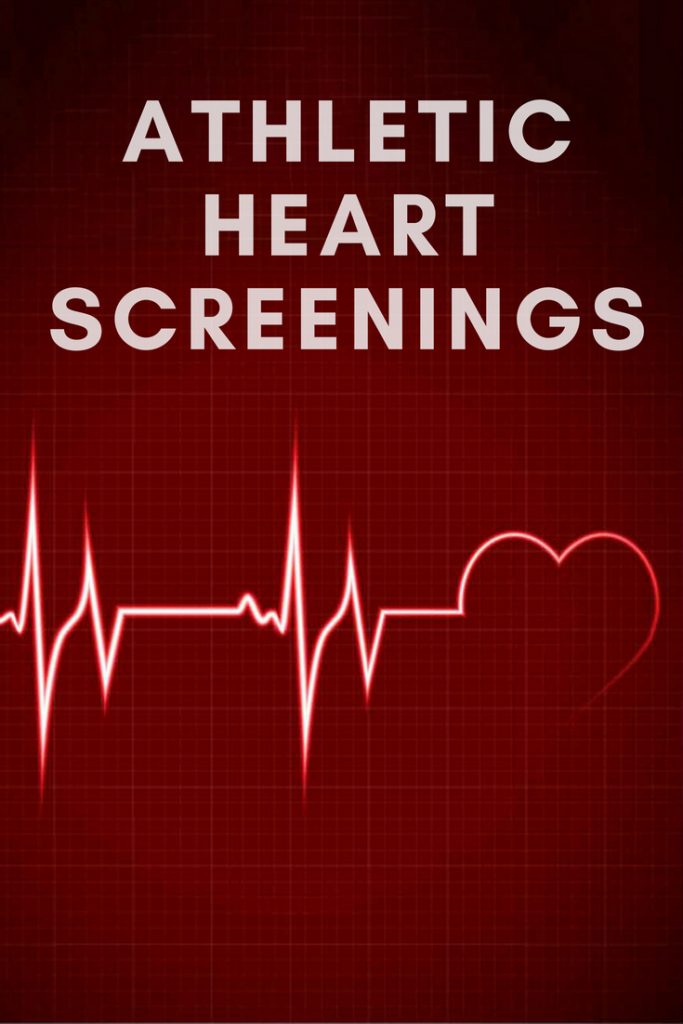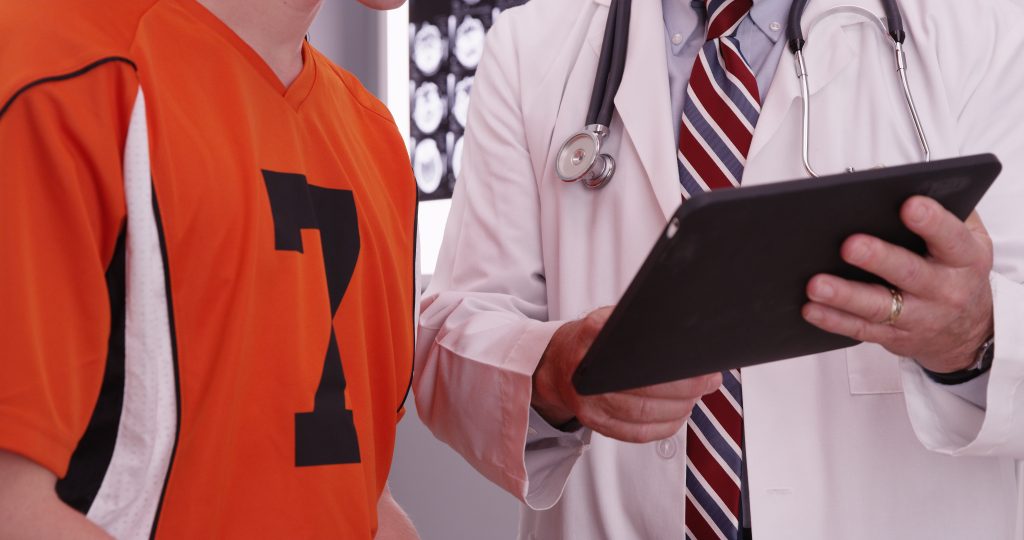Athletic Heart Screenings:
What Parents Need to Know

Summer is in full swing and not far behind will be the fall sports season. We are beginning to see an influx of sports physicals come through the office at Central Family & Sports Medicine at the youth, high school and collegiate level so I thought it would be a great time to discuss changes in screening for sports participation and the importance of athletic heart screenings.
Why is a pre-participation physical not enough?
Historically we have depended on the history and physical to evaluate whether an athlete was medically ready to participate; however, data over the past decade suggests those tools just simply aren’t enough to catch many of the often undetected and asymptomatic cardiovascular conditions we need to be ruled out. You see, the problem is that many of the conditions we are trying to detect to prevent sudden cardiac death in athletes often don’t present or become symptomatic until it’s too late rendering the history and physical often useless in this regard. Newer data over the same period has shown that a screening electrocardiogram (EKG) prior to participation is a much better tool to evaluate for these often difficult to detect conditions.
The Electrocardiogram (EKG): What is it, how long does it take, what can it show us and how much does it cost?
An EKG is a test that uses leads we put on your body to measure the electrical pattern of your heart. It is not painful in any way. The test typically takes about 5 minutes. It is a simple, non-invasive test that can give us a lot of information about the health of your heart.
If there are electrical or anatomic abnormalities of your heart due to an underlying condition these changes are often identifiable on an EKG. There are a number of conditions which are considered potentially lethal and would disqualify an athlete from participation in athletics such as Wolff-Parkinson-White Syndrome (WPW), Hypertrophic Obstructive Cardiomyopathy (HOCM), Long QT Syndrome and others.
The cost of an EKG at our office is an additional $20 on top of the cost of the sports physical. We recommend an EKG for high school athletes once during their high school career and collegiate athletes once during their college career. This is a screening test meaning it is not meant to be repeated annually if it is initially normal.
Why are we recommending them now when EKG’s have been around for years?
Ok, so we understand that there are heart abnormalities which are often undetected unless an EKG is done and we now understand what an EKG is and what it evaluates, but why are we recommending them now when EKG’s have been around for years and years?
What has to be understood first is that if you’re an athlete your heart is different because of the training you do. It’s sometimes larger than normal, beats slower, may have more muscle in certain locations and many other small differences that make it unique and these differences create changes on the EKG! This means an athlete’s heart on an EKG looks abnormal to the untrained eye leading to a historically high false positive rate (ultimately normal hearts with EKG’s being said to be abnormal). This leads to further tests such as echocardiograms, stress tests, etc. which were found to be normal and ultimately unnecessary.
What has changed is we now have recognized international criteria for evaluating the EKG of the athlete and studies have demonstrated an ability to use these tools and reduce the false positive rate to 2-3% down from reports as high as 15-30% previously! In a 10-year study in NCAA athletes 60% of the sudden cardiac deaths over that time period could have been detected with a screening EKG and none of them, ZERO percent were detected by history and physical alone. This is important!
Keeping your athlete safe is our top priority.
We made the decision to start offering screening EKG’s to those who wish to have them starting at the high school age once during the high school career at Central Family & Sports Medicine based on the evidence that overwhelmingly suggests if we don’t use EKG we are not going to detect many of the potentially lethal conditions of the heart. We want your athletes and our patients to be safe and to know we are putting them on the field with the best screening possible. They still need to get their history and physical as well because we are also evaluating their musculoskeletal, pulmonary, nervous, endocrine and other systems for readiness, but the EKG gives us a confidence in the cardiovascular component we wouldn’t have otherwise.
While the incidence of these potentially lethal cardiac conditions is relatively low, we have found 5 over the past 2 years since implementing this program. That’s 5 lives I can tell you we are happy to have impacted and none of them would have been found without EKG screening. A few of them have been correctible conditions where the athlete was able to have a procedure and return to play safely. The others ended an athletic career, but those young people are still walking, talking, going to school and not putting their hearts at risk.

How can I schedule an athletic heart screening?
At Central Family & Sports Medicine we have four board-certified sports medicine physicians trained to interpret athlete EKG’s and ready to evaluate your athlete, their heart and get them to play safely. As you prepare for another season of play I hope you’ll consider getting your athlete’s heart evaluated before they step on to the field!
To schedule an appointment, call Central Family & Sports Medicine at (660) 747-5114, Monday – Friday 8:00 am – 5:00 pm.
Please be prepared to validate your personal and insurance information at the time of the call.
Author: Drew Glover, MD CAQ-SM, Central Family & Sports Medicine, Team Physician-University of Central Missouri, Western Missouri Medical Center

